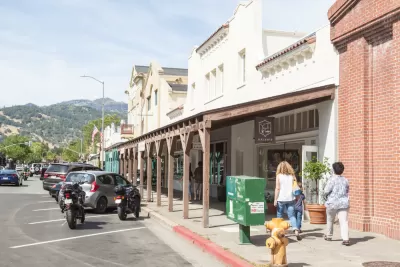A total of 144 metropolitan statistical areas might lose their federal designation if a proposal under discussion at the Office of Management and Budget is approved.

Mike Schneider, writing for the Associated Press, reveals the details of a plan under consideration at the federal Office of Management and Budget that would remove metropolitan statistical area (MSA) designations for 144 locations in the United States. The change would mean 144 MSAs with populations between 50,000 and 100,000 would be designated as micropolitan statistical areas instead. The 144 MSAs targeted for the change in designation represent a full third of the nation's total MSAs.
Officials in some of the cities included in the list of 144 are expressing concern that the change would affect federal funding for programs tied to MSA designation, like housing, transportation, and Medicare reimbursement programs, and create more competition for funding devoted to rural locations.
While Schneider's article focuses on some of the Midwestern locations likely to be impacted by the proposed change, the news also spread to the South, particularly in Alabama, where Lawrence Specker reports in a separate article that seven cities in that state are likely to be changed under the proposal, along with MSAs in the surrounding states of Louisiana, Arkansas, Tennessee, Mississippi, Georgia, and South Carolina.
As noted by Specker, the proposal has been under consideration for a few years, back to August 2019. The proposal is intended to update the definition of MSAs for the first time since the 1950s. The nation's population has doubled in that time, and percentage of Americans living in MSAs has increased from about half to 86 percent.
FULL STORY: Bye, Bismarck: 144 cities could lose status as metro areas

Alabama: Trump Terminates Settlements for Black Communities Harmed By Raw Sewage
Trump deemed the landmark civil rights agreement “illegal DEI and environmental justice policy.”

Study: Maui’s Plan to Convert Vacation Rentals to Long-Term Housing Could Cause Nearly $1 Billion Economic Loss
The plan would reduce visitor accommodation by 25% resulting in 1,900 jobs lost.

Planetizen Federal Action Tracker
A weekly monitor of how Trump’s orders and actions are impacting planners and planning in America.

Waymo Gets Permission to Map SF’s Market Street
If allowed to operate on the traffic-restricted street, Waymo’s autonomous taxis would have a leg up over ride-hailing competitors — and counter the city’s efforts to grow bike and pedestrian on the thoroughfare.

Parklet Symposium Highlights the Success of Shared Spaces
Parklets got a boost during the Covid-19 pandemic, when the concept was translated to outdoor dining programs that offered restaurants a lifeline during the shutdown.

Federal Homelessness Agency Places Entire Staff on Leave
The U.S. Interagency Council on Homelessness is the only federal agency dedicated to preventing and ending homelessness.
Urban Design for Planners 1: Software Tools
This six-course series explores essential urban design concepts using open source software and equips planners with the tools they need to participate fully in the urban design process.
Planning for Universal Design
Learn the tools for implementing Universal Design in planning regulations.
Caltrans
Smith Gee Studio
Institute for Housing and Urban Development Studies (IHS)
City of Grandview
Harvard GSD Executive Education
Toledo-Lucas County Plan Commissions
Salt Lake City
NYU Wagner Graduate School of Public Service





























